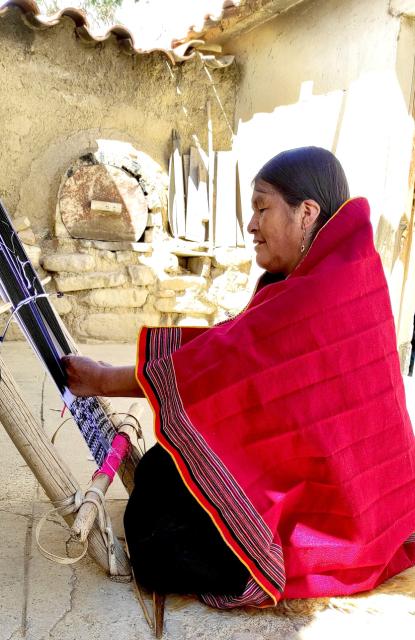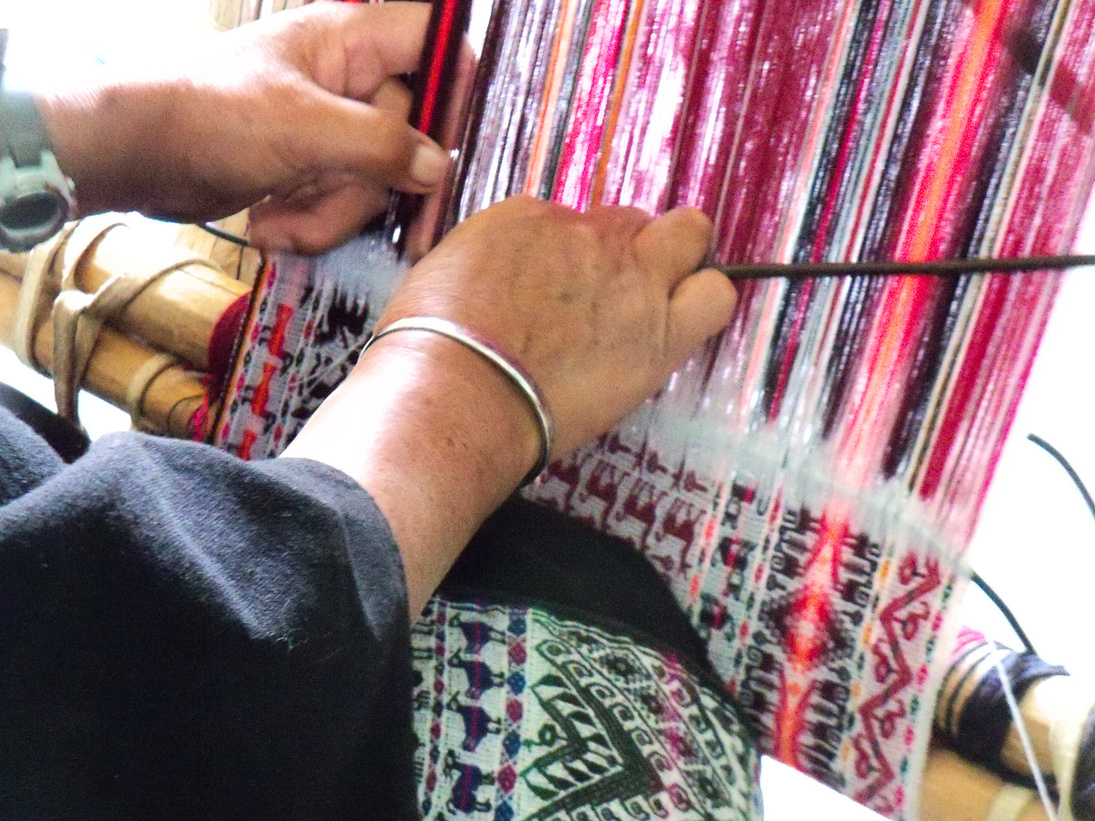Across the rich landscapes of the Andean region and beyond, indigenous artists like Mama Santusa Quispe are creating more than just tapestries; they are weaving stories of identity and community. Thousands of miles away, their cultural expressions have found a new home at The Ohio State University, where Michelle Wibbelsman, associate professor in the Department of Spanish and Portuguese, leads efforts to build meaningful connections rooted in cultural preservation and collaboration.
Through initiatives with the AWANA Network of Intercultural Artists, the Global Arts and Humanities Discovery Theme (GAHDT) K'acha Willaykuna Collaboration, the Kawsay Ukhunchay Andean and Amazonian Indigenous Art Collection, and storytelling projects with artists such as Mama Santusa, Wibbelsman has established platforms for preserving traditions while fostering mutual growth. Her work embodies the university's commitment to learning from and working alongside indigenous partners worldwide.
Collaborative networks for mutual empowerment
AWANA, a collective of intercultural artists from Ecuador, embodies the spirit of this connection. Named after the Quechua word for "to weave," AWANA was created in response to the isolation experience of the COVID-19 pandemic.
The founding event, the Minka Cultural Virtual Concert and Cultural Encounter, took place in May 2021 with support from Ohio State's ASC Tech, showcasing the work of more than a dozen Andean artists.
Through initiatives like the K'acha Willaykuna Andean and Amazonian Indigenous Art and Humanities Collaboration, supported through GAHDT, Ohio State has helped connect AWANA with opportunities to amplify voices of Andean artists on a global stage.
"This wasn't just about showcasing the artists for Ohio State," Wibbelsman said. "It was about providing visibility to strengthen their presence in their own communities."

Strings of connection
Continuing to build relationships, in 2021, the Center for Latin American Studies supported Ecuadorian-born Kichwa Otavalo musician and composer Ati Cachimuel, one of AWANA's artists, in the research and publication of an Andean Violin Methods Manual, a children's violin practice book designed to teach techniques of the Andean violin tradition.
"The Andean violin method differs significantly from the Western violin method," Wibbelsman explains. "The exercises in the book teach the reader everything from proper bow handling down to the specific tuning of the violin."
In 2024, Cachimuel was selected for a GAHDT K'acha Willaykuna artist residency at Ohio State. Through his collaboration with the university's Center for Latin American Studies and Advanced Computing Center for the Arts and Design's Motion Lab as a part of the one-year artistic residency, Cachimuel explored connections between traditional Andean sounds with contemporary art practices.
The artist residency brought the strength of Ohio State's resources and an interdisciplinary team of 32 faculty, graduate and undergraduate students and staff to enable the artist's vision.
Preserving traditions through stories
Wibbelsman's approach to collaboration is evident in the sustained work she and her student researchers have done with Mama Santusa, a Bolivian master weaver whose tapestries tell intricate stories.
Their partnership began in 2020 with the purchase of one of Mama Santusa's storytelling weavings by the Kawsay Ukhunchay Andean and Amazonian Indigenous Art Collection, housed in Department of Spanish and Portuguese.
Under Wibbelsman's guidance, students had the opportunity to interview Mama Santusa Quispe in both Spanish and Quechua to learn about the techniques and meanings behind her weavings. Currently, an undergraduate researcher is collaborating on a children's book based on Mama Santusa's storytelling weaving.
These exchanges have deepened cultural understanding and created meaningful connections between artists, scholars and students, highlighting the importance of preserving and honoring Indigenous knowledge through storytelling and artistic expression.
A model for engaged scholarship
In spring 2024, the K'acha Willaykuna Collaboration was recognized as one of the top three Programs of Excellence in Engaged Scholarship by the Office of Outreach and Engagement for its commitment to cultural collaboration and demonstrating the meaningful connections that can emerge when academia and community come together.
By supporting and highlighting projects in music, weaving and storytelling, this type of community-engaged collaboration has created spaces where Indigenous artists can share their traditions while enriching the university's understanding of global cultures.
